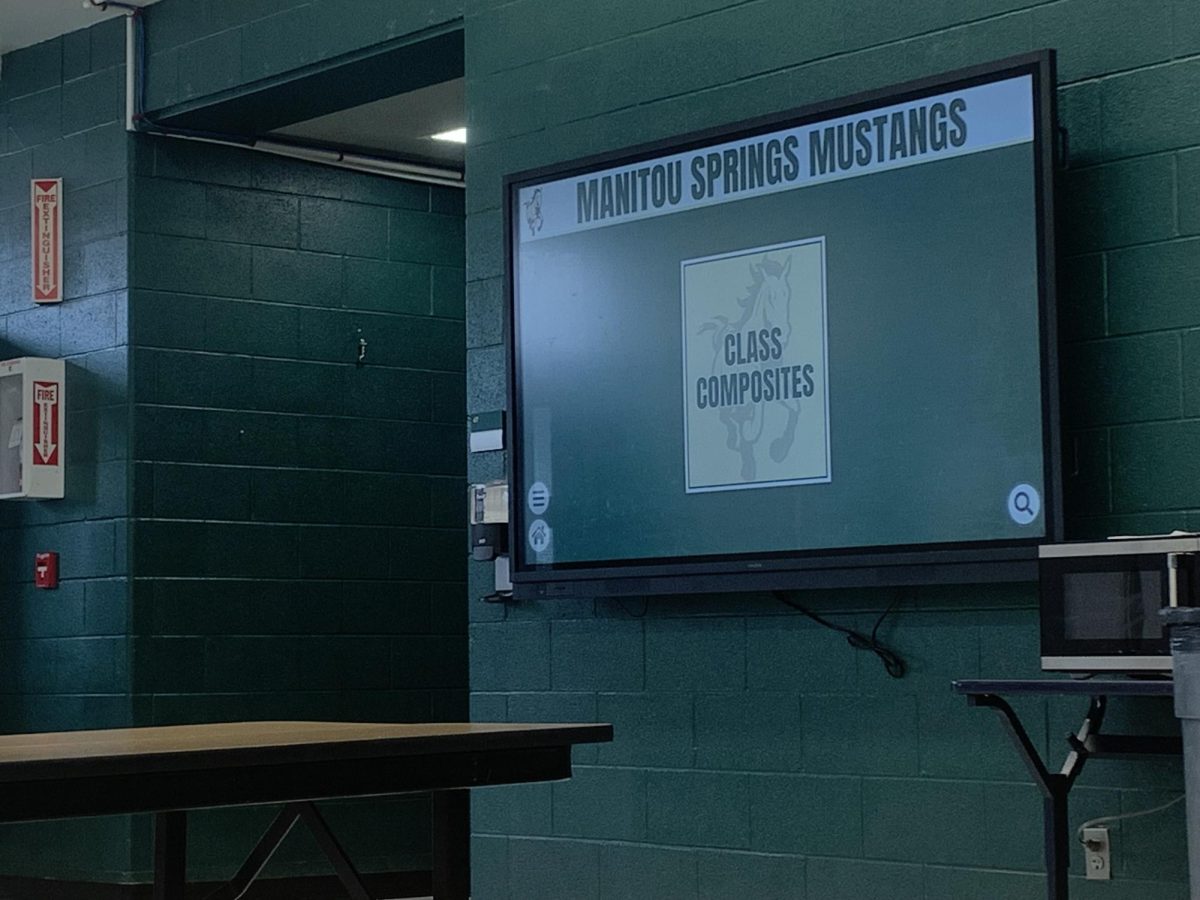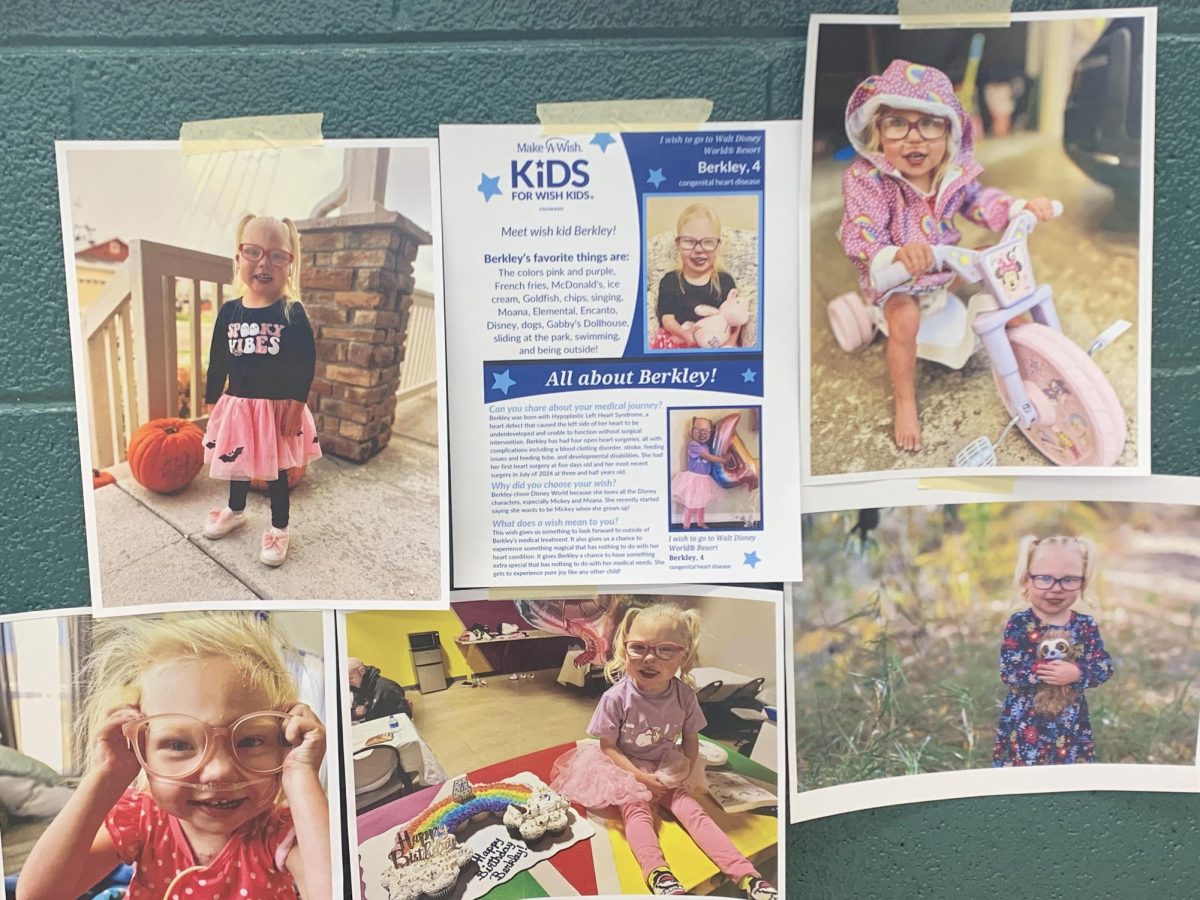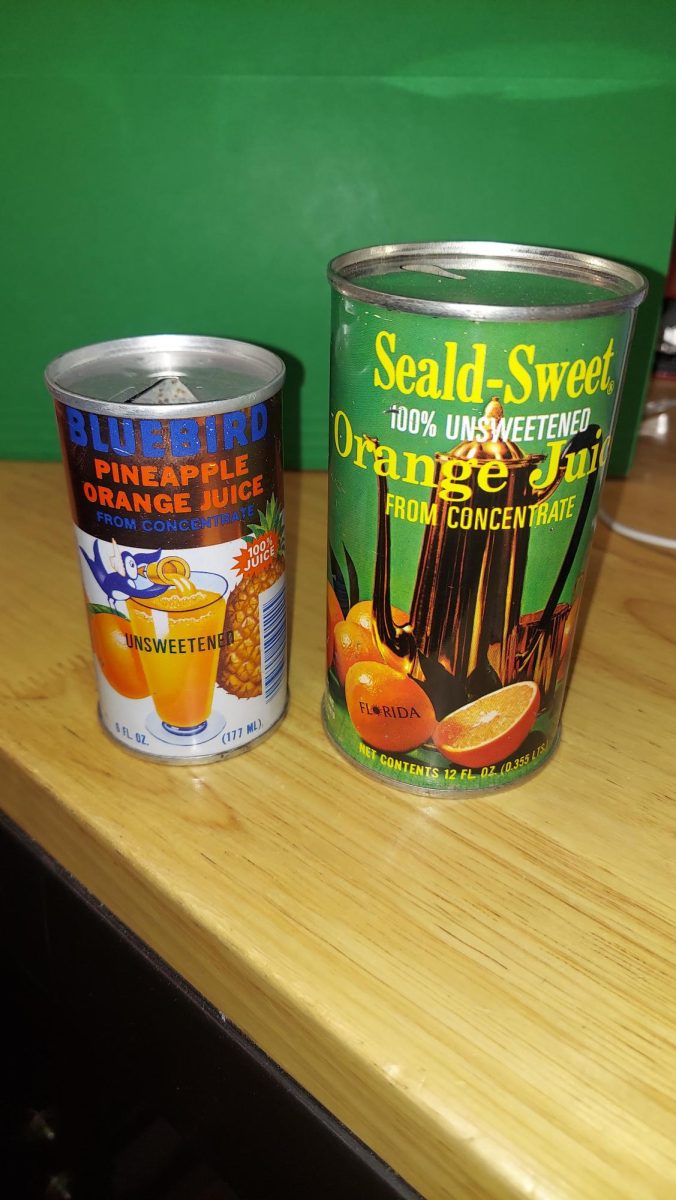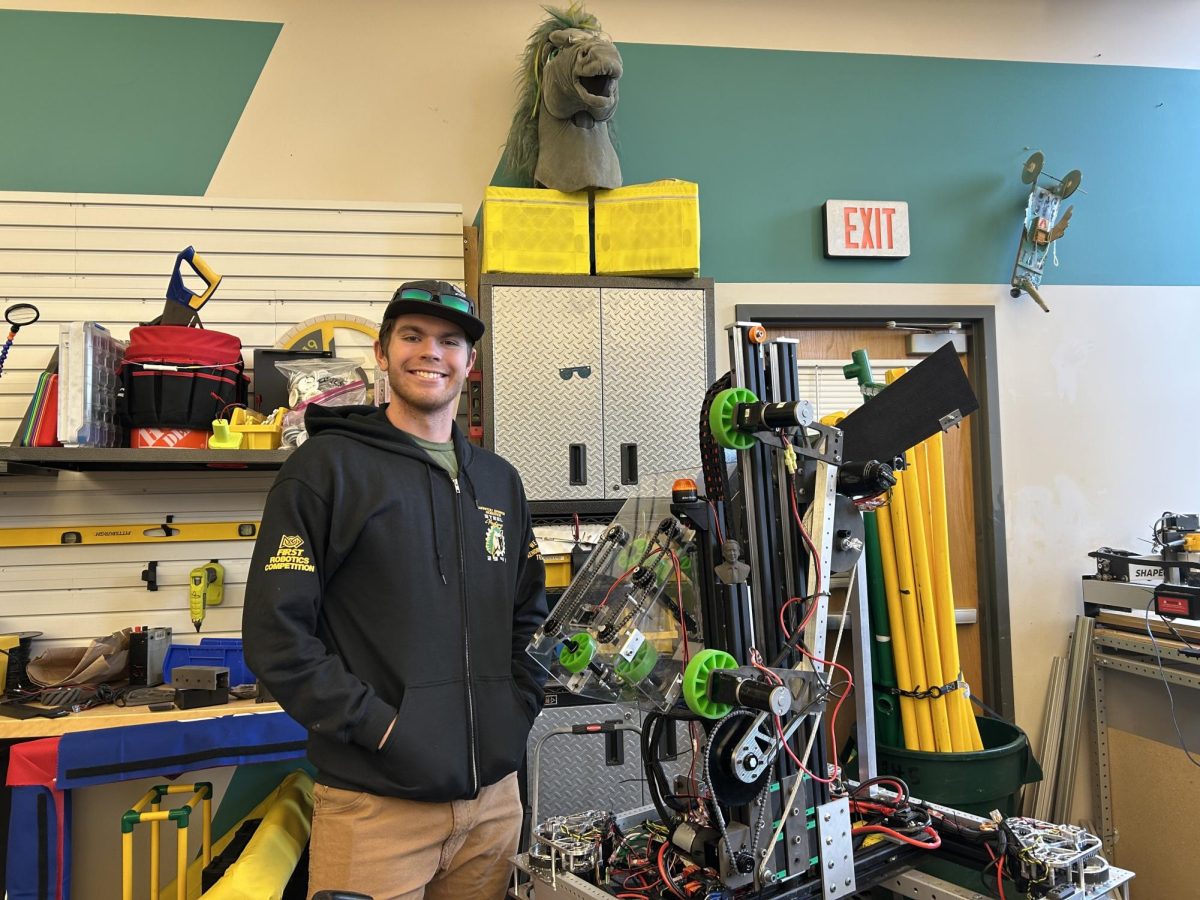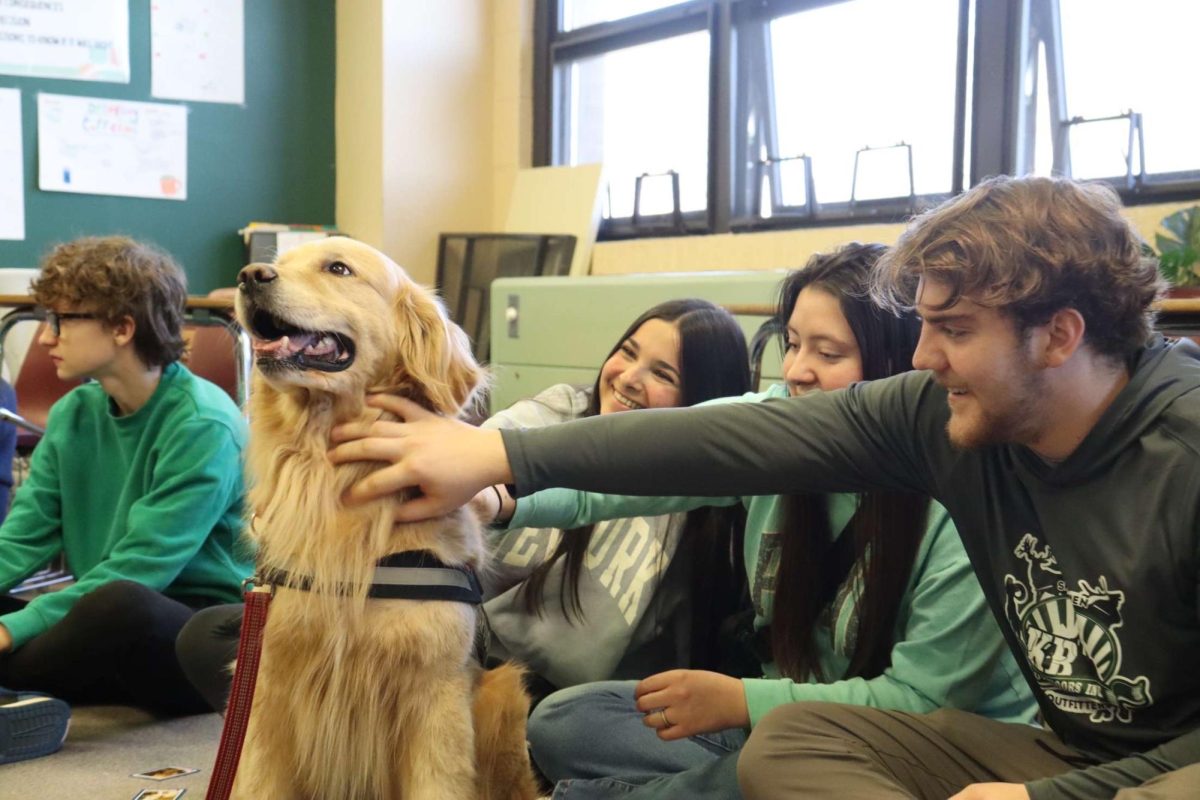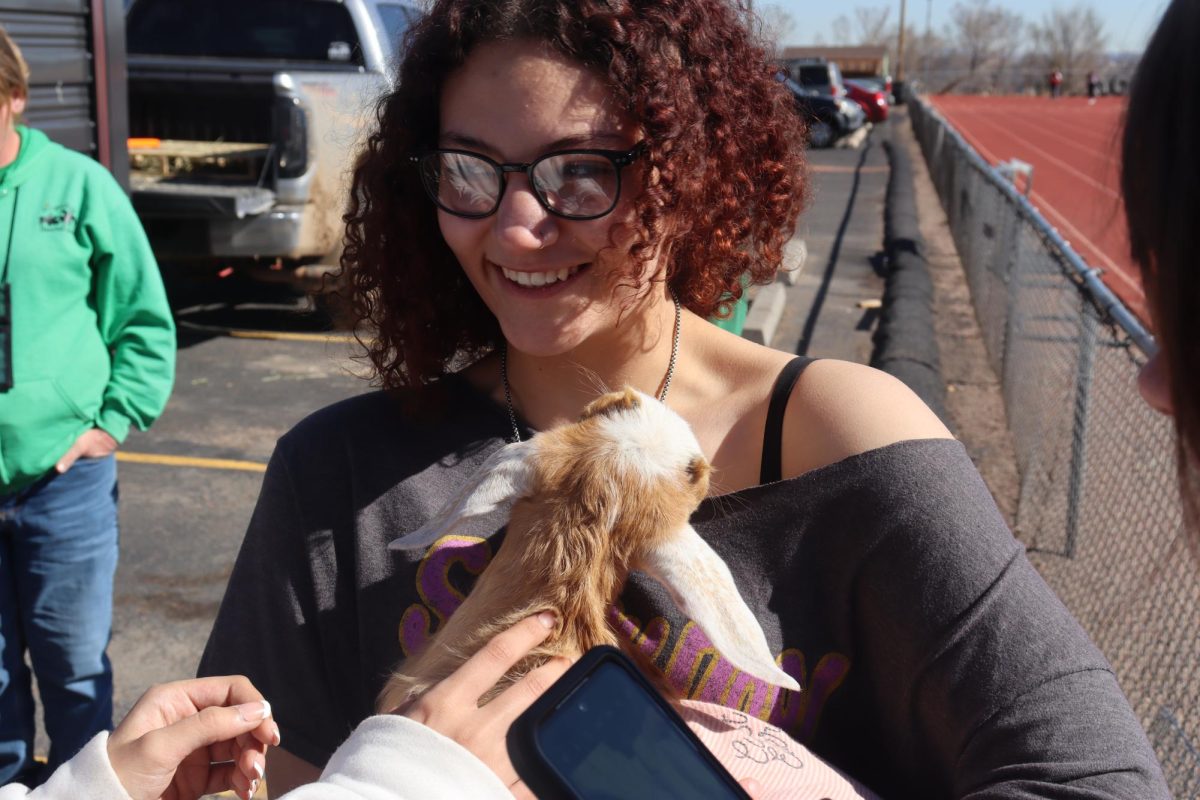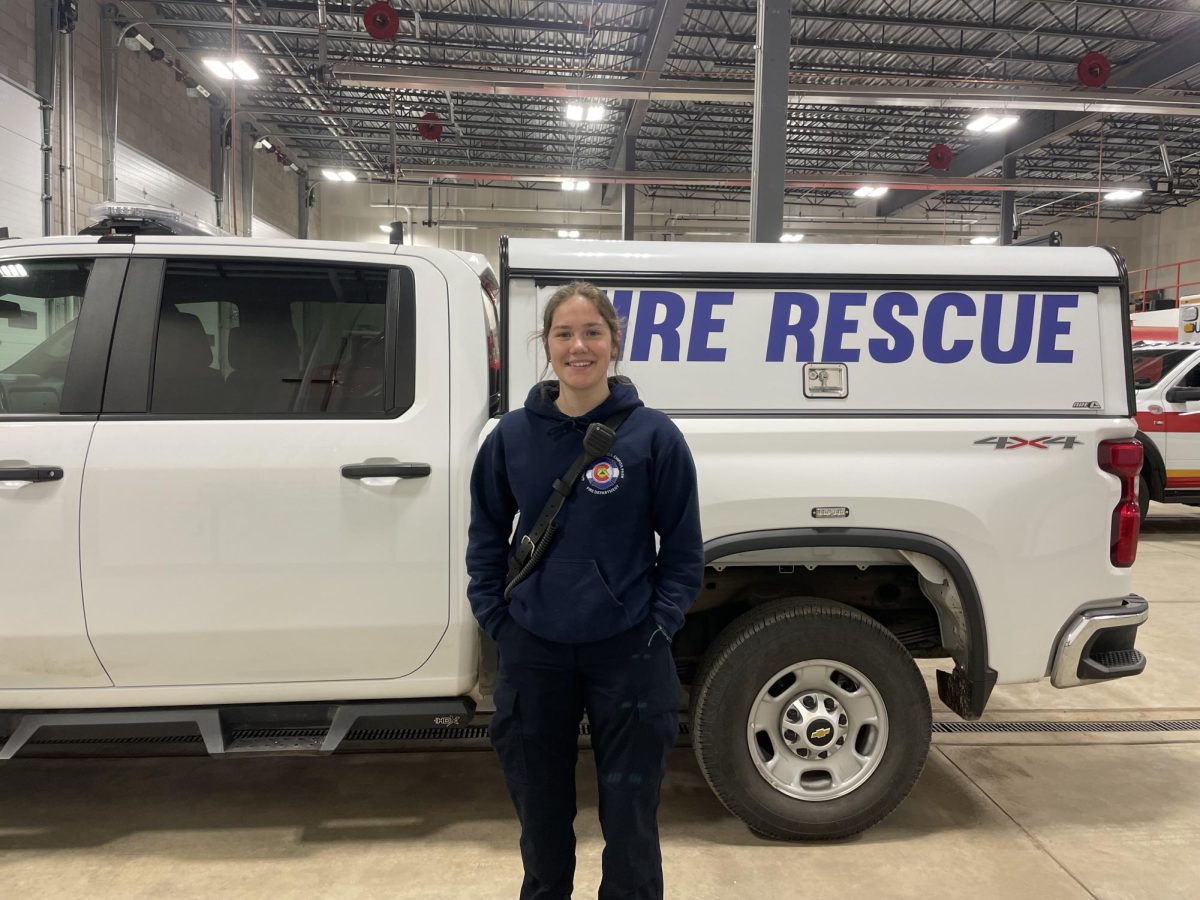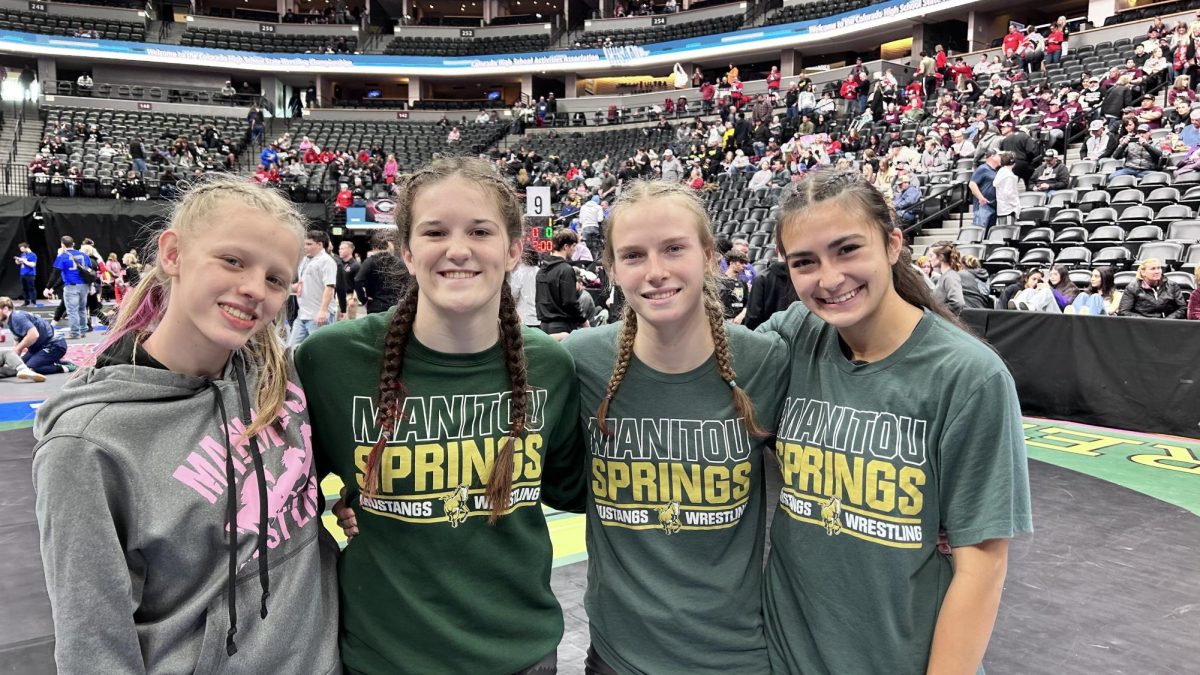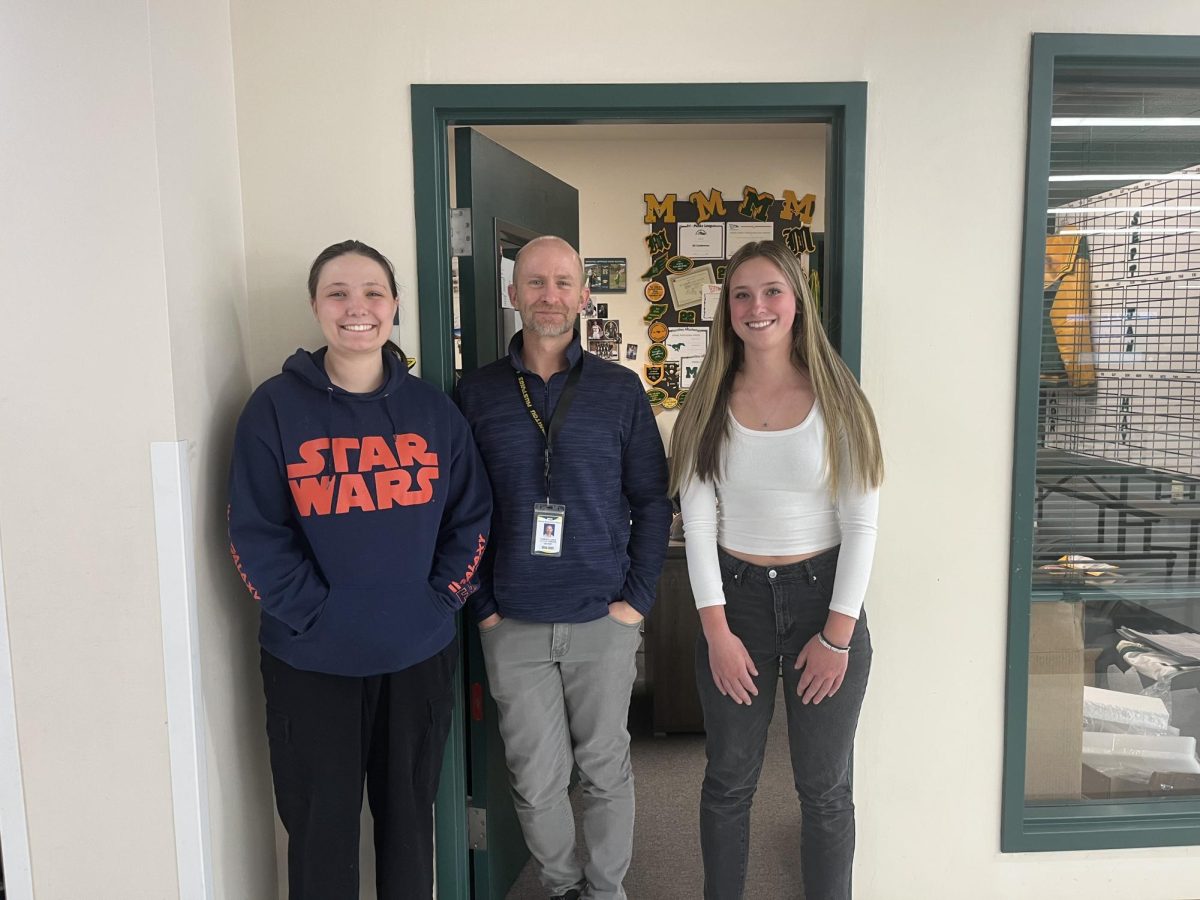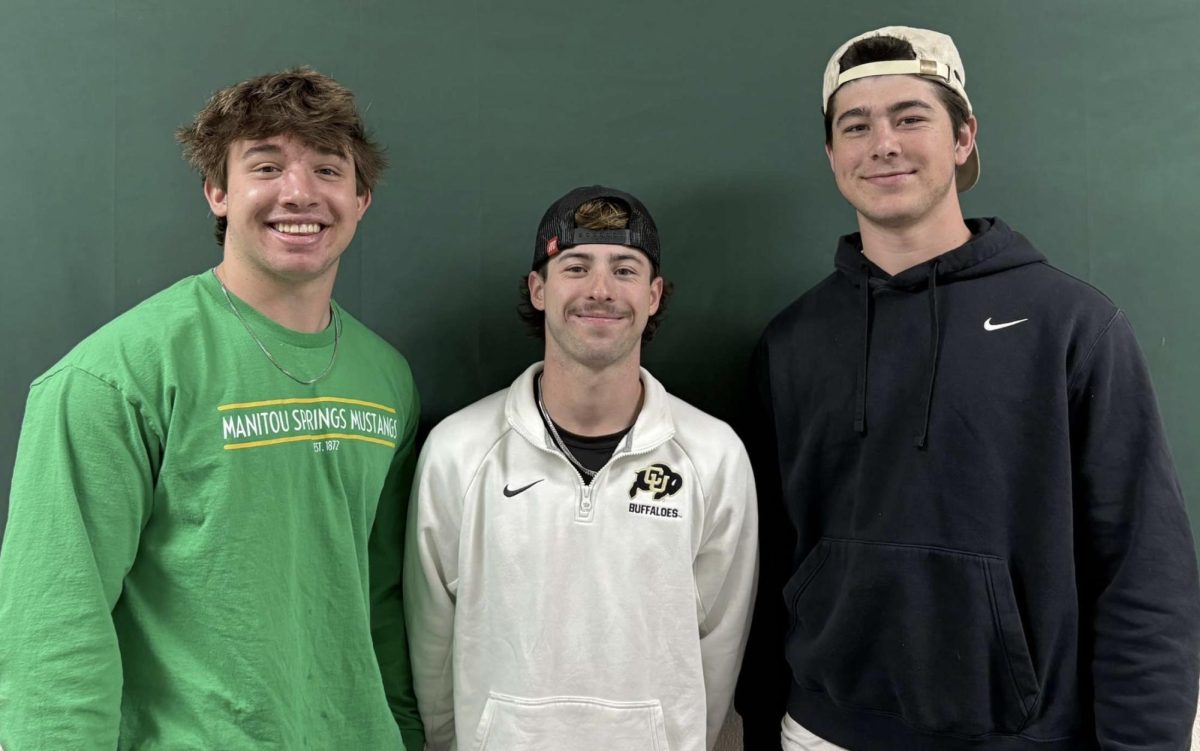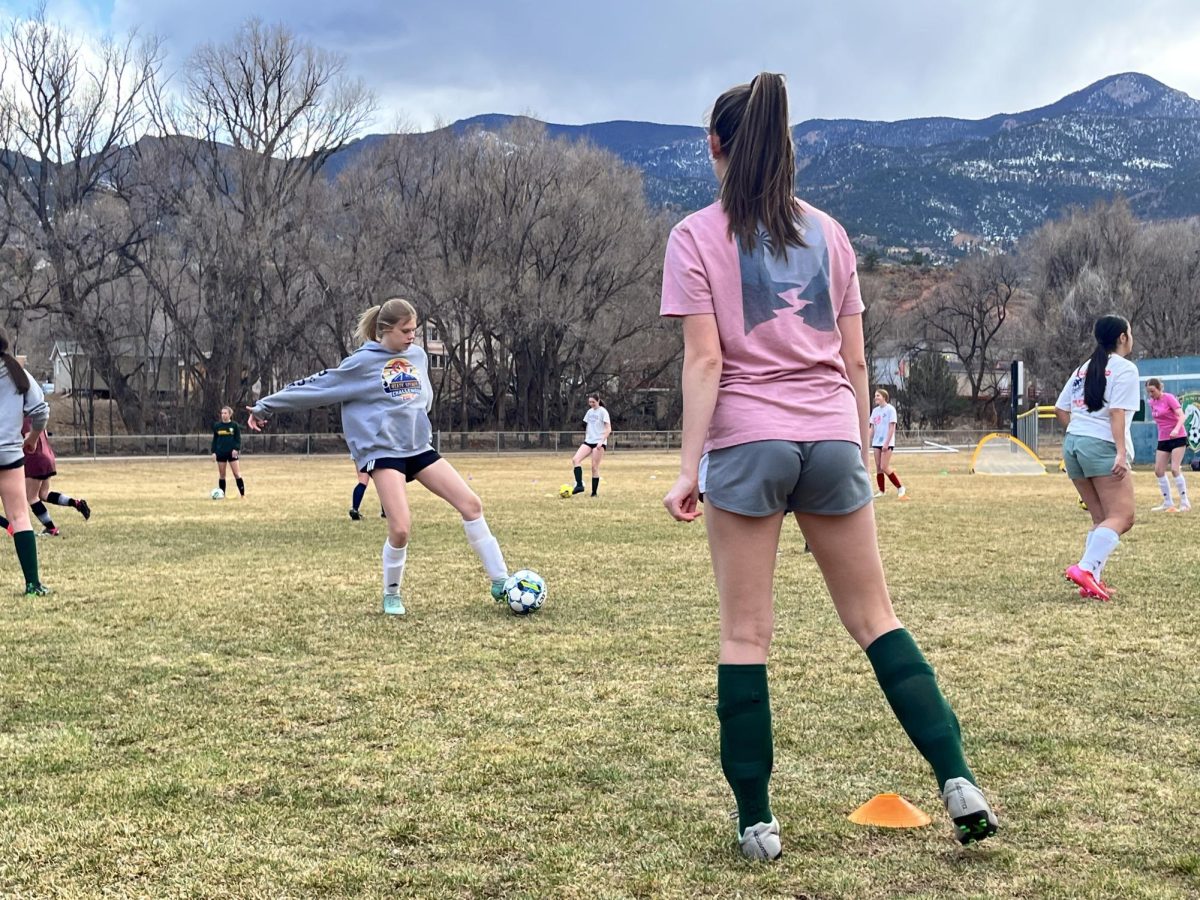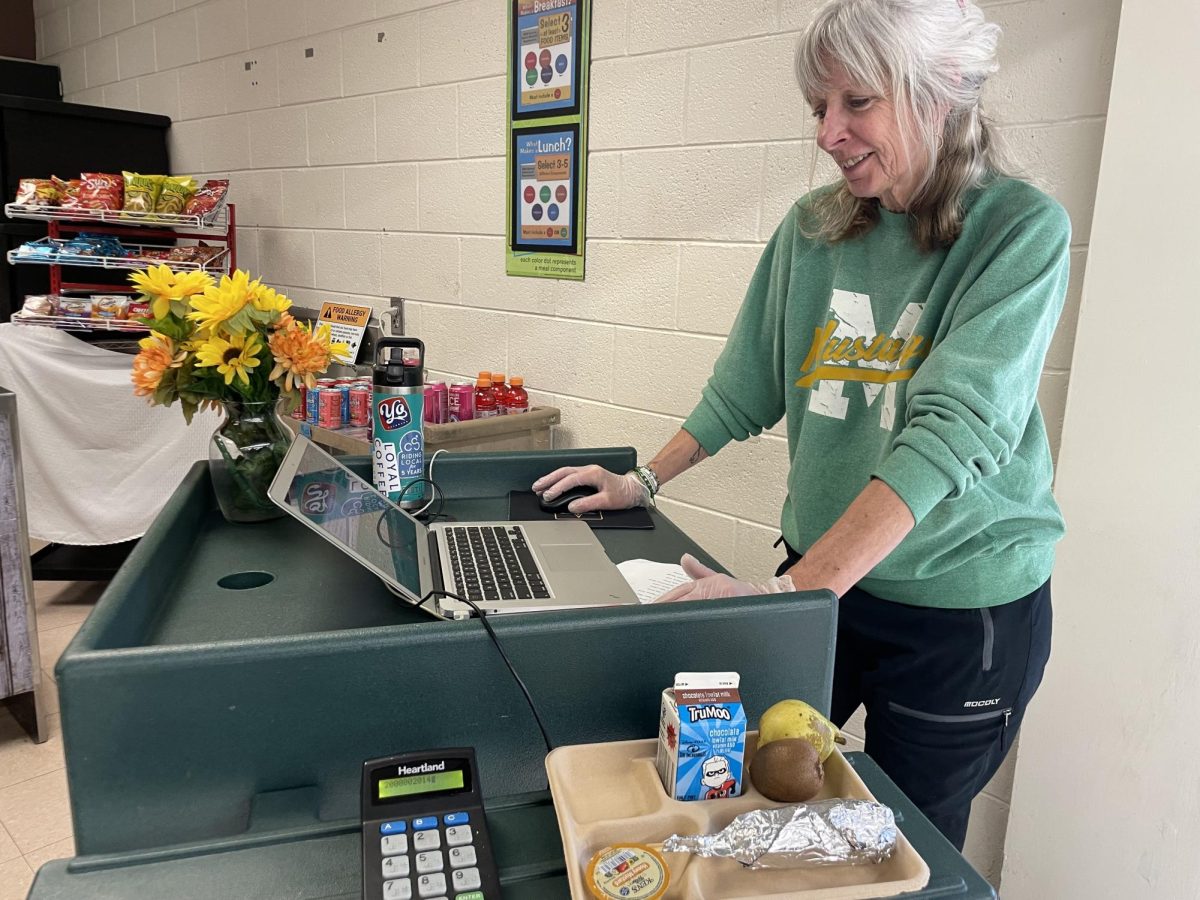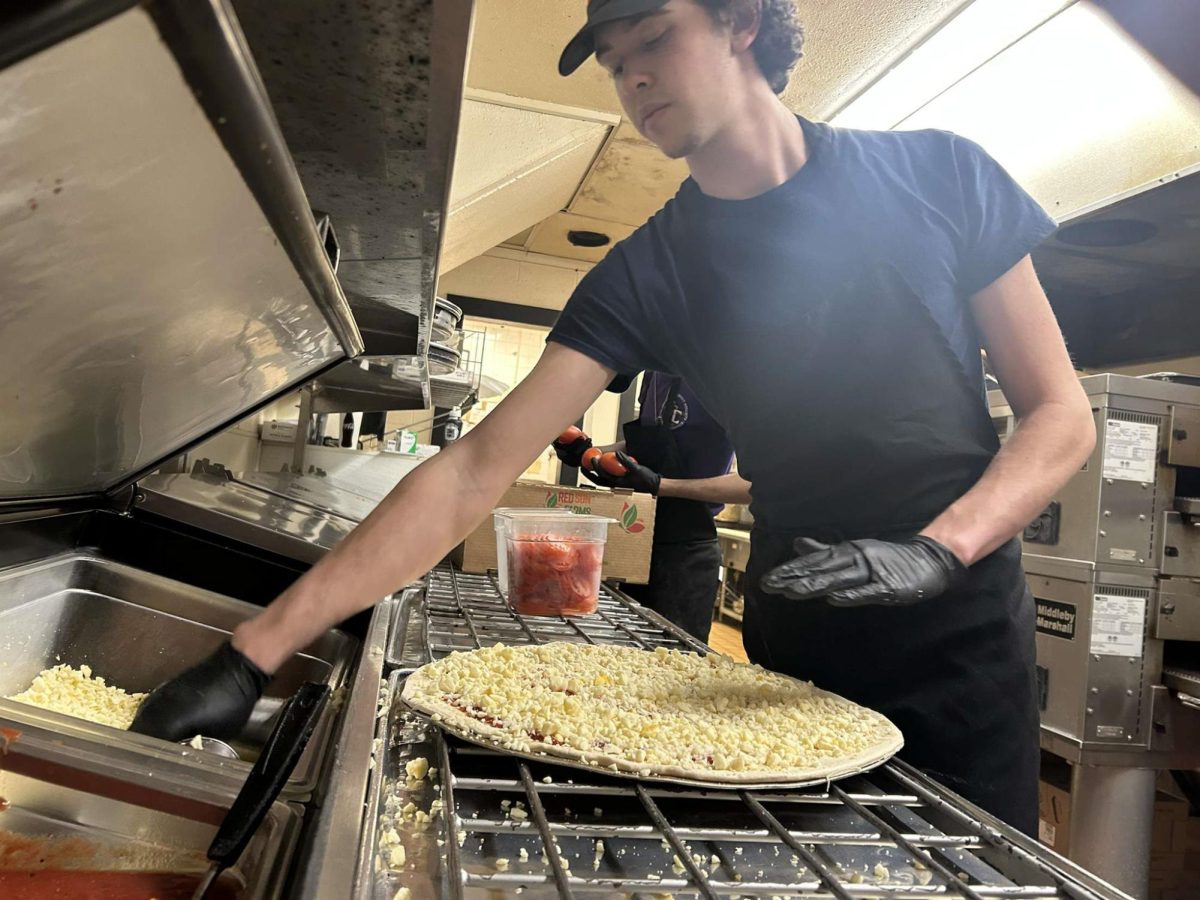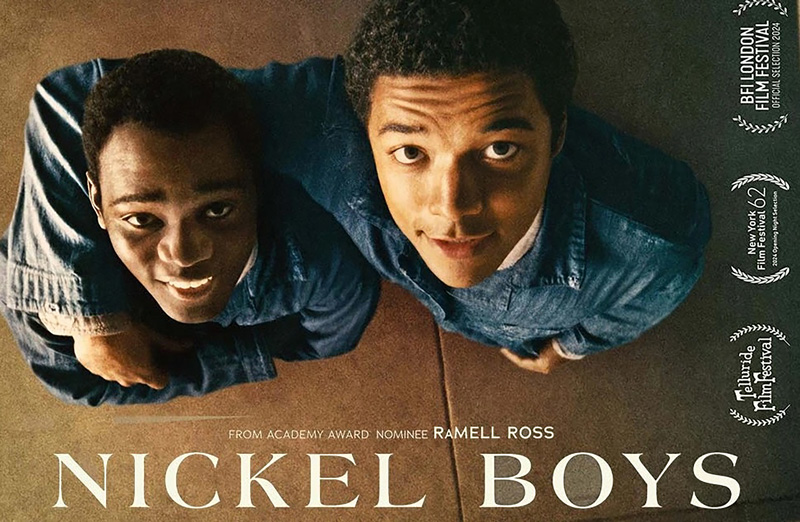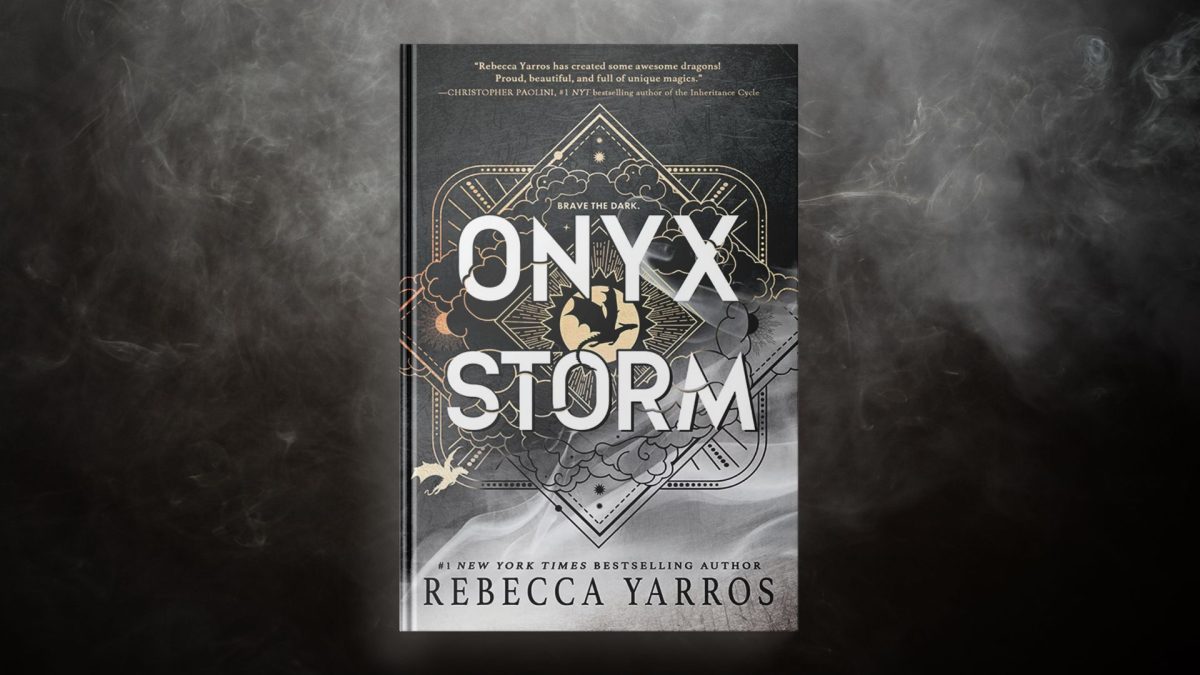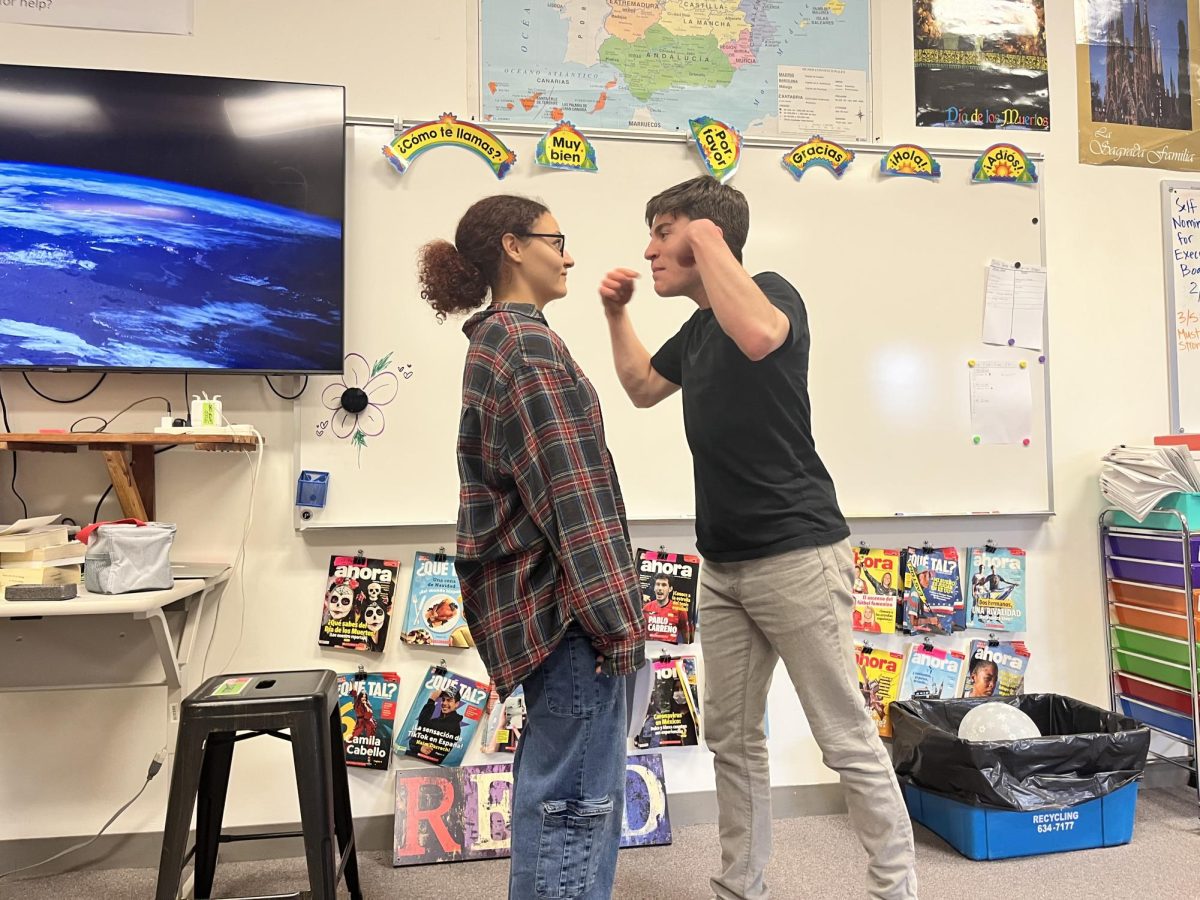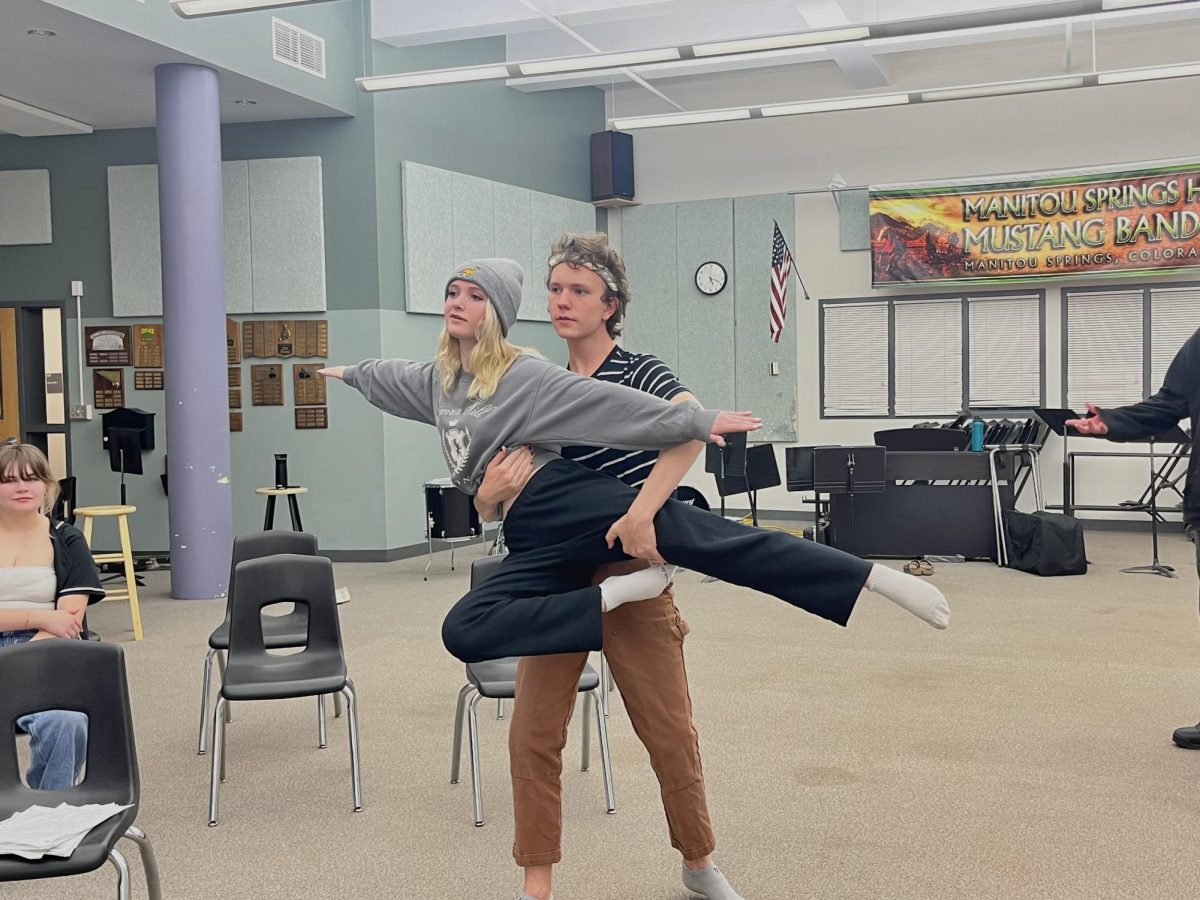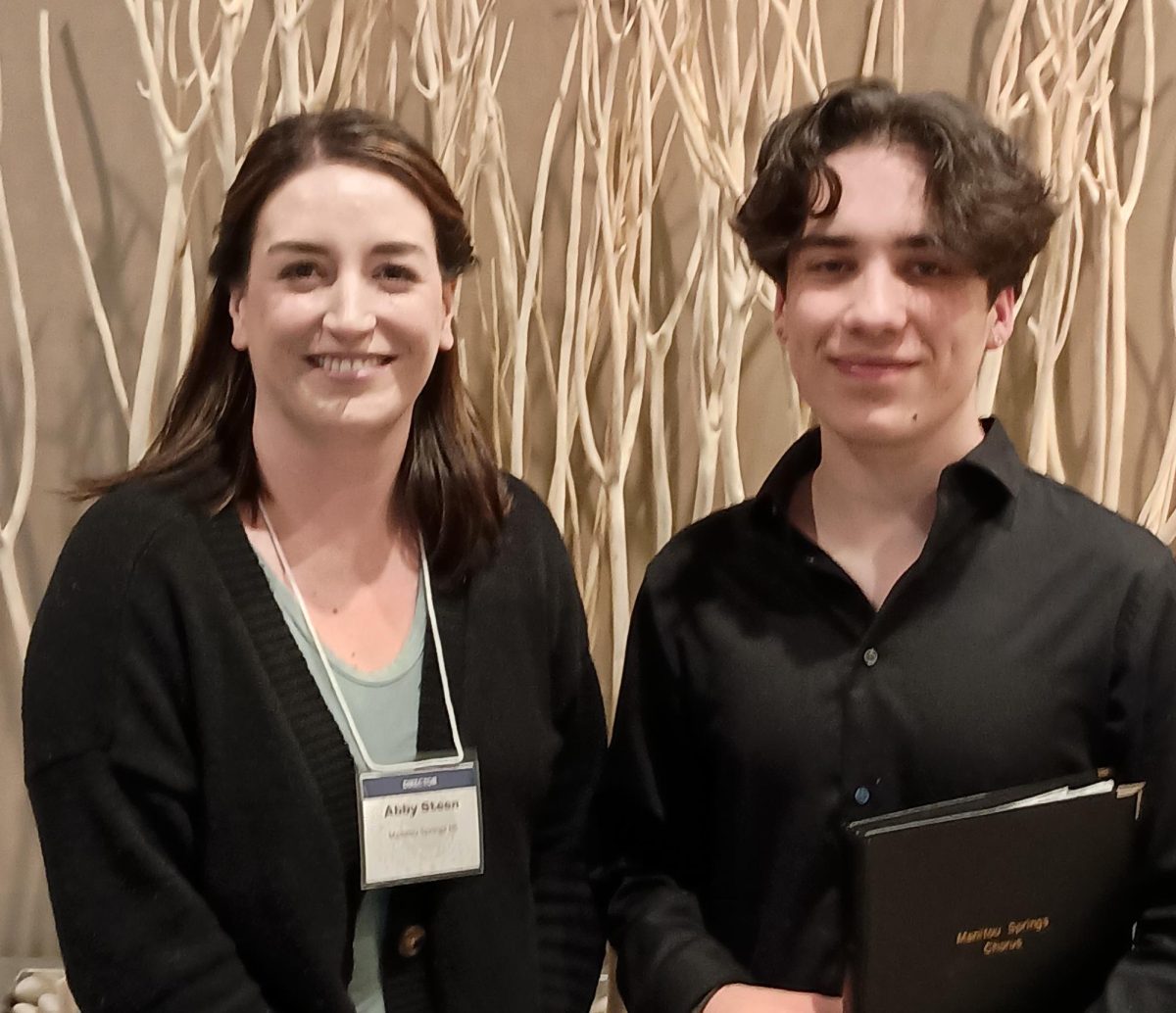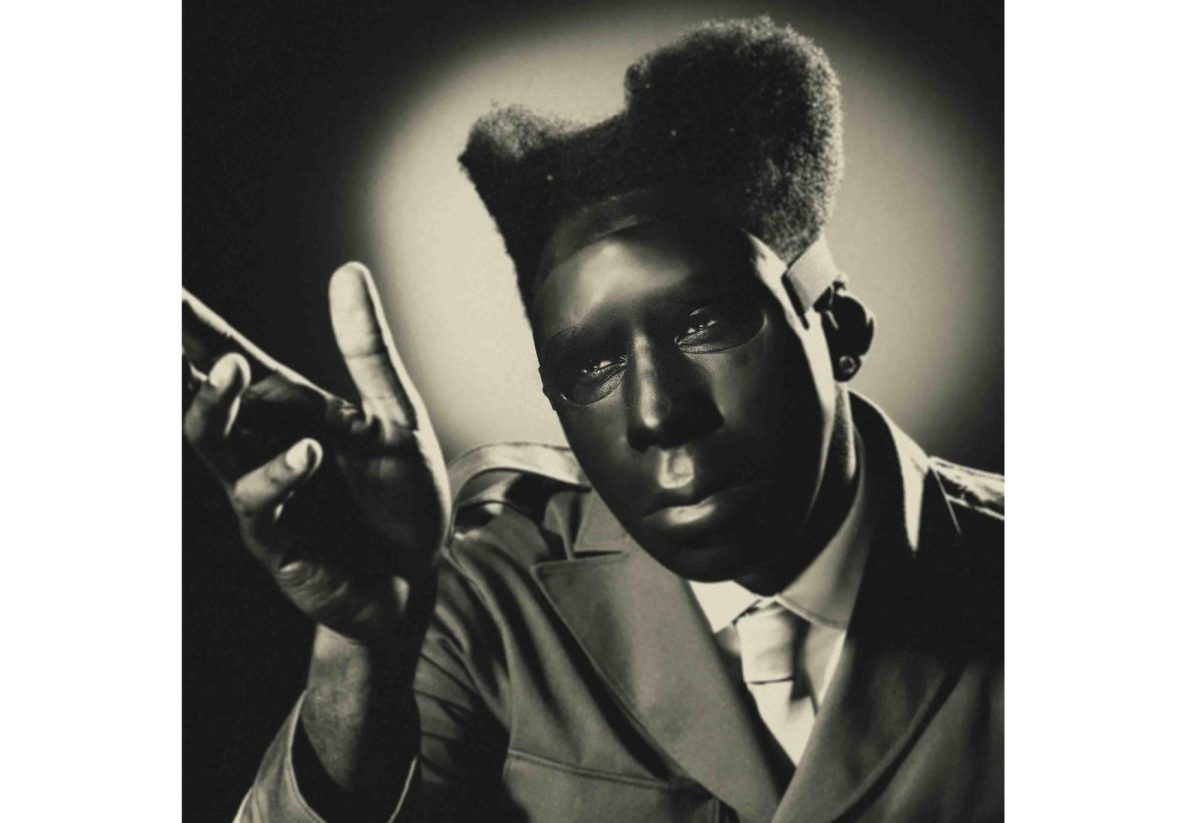“Ten stories. Ten students. Ten emerging filmmakers.”
May 15, 2015
Mía Elliot (11), Marley Kaiser (10), and Scott Larwood (9) all sat around one of the lacquered wooden tables in the Manitou Springs High School Media Center, discussing film and their experiences with it, as a reporter from this newspaper sat by and listened. All three of them have been selected for this summer’s Youth Filmmaking Festival (otherwise known as the Youth Documentary Academy) held at the Fine Arts Center, where they—among 14 other students selectively chosen for the excursion—will participate in teams and build their own documentary with professional quality tools.
This festival, headed by one Tom Shepherd (professional filmmaker), was originally created to provide youths who have aspirations for film with the means and apparati to fulfill their dreams. The program is entirely free, which is what makes it so great, and provides a massive sum of $3,000 to those who are selected for it. According to the three Manitou students, the criteria did not exist. The only means those wishing to enter the program need are the ability to strive, a good idea, the willingness to complete it (and produce a great product), and the showing of interest.
“I want to tell real stories,” said Kaiser as the conversion went from person to person. Because the festival bases its “curriculum” on documentary filmmaking, those involved in it will build films focusing on real issues. “I want to know what people are feeling and what the world’s problems are, and film lets us do [this],” said Larwood, continuing to say that film allows us to explore (as well as exclaim) our emotions and opinions about something, and make them universal to other people.
Because these three young inspirators all come from different backgrounds, the experience should draw them together as much as allow them to pursue their hopes and dreams. Larwood being a freshman, Kaiser being a sophomore, and Elliot being a junior, the diversity in age is conspicuous. And, surprisingly enough, Manitou is the secondmost high school in the area to supply more than one student for the festival.
The festival itself will run through the summer, when those associated and selected for it will create the sketches and outlines of their movies, as well as produce a complete product. Furthermore, all of the films will premiere like documentaries presented at an actual theatre. Not only does this allow the experience to be all the more relative, but it will supply a deadline to inspire the young filmmakers to present their best and most excellent creation for their fellows to watch, as well as any of those willing to show up. This premiere is on November 5th, 7 p. m., at the Fine Arts Center.
All artists have their backgrounds and inspiring moments in their lives—or maybe even some object to which they supply excessive importance (e. g. a typewriter, camera, computer, etc.)—and Elliot, Larwood, and Kaiser most definitely have theirs. Elliot said, “What has inspired me the most is the effect of film, and I’ve always wanted to do [this] for other people.” She continued, saying that there weren’t necessarily “moments” in her life which inspired her want to create film, but that there were little necessities: videos of her dog playing, stop-motions of Barbies killing each other, cooking shows, even a flip camera. (When she was young, Elliot also admits asking for her friends’ phones to use to create videos because she didn’t have device which could take videos; as well, she said that she would always take her friends’ video footage and edit it on the spot.) Then there was Wendy Harms’s (the MSHS drama teacher who also has experience in film) summer film camp in middle school, “Eat. Sleep. Film.,” a lesser variant of the Youth Film Festival. Elliot participated in all three years of it, and volunteered for the fourth year when she entered high school. She plans on majoring in film after high school, even though she understands that the time between now and then is a great amount, and things can change very quickly.
Agreeing with her that there were little things like homemade cooking videos (in more than one way) and shots of Guinea pigs (like Elliot’s dogs), as well as Wendy Harms’s camp, Kaiser pertained to what Elliot originally said. “There’s always been a camera in the house,” he said. Kaiser’s mother is a photographer, and he says that it was only natural that his aspirations should be what they are.
Like the other two, Larwood said (with a touch of inspiration), “My life’s been film. [And all] I wanted to know [was] what the heck you’d use a camera for.” Larwood claims that more than anything else, he wants to be a filmmaker, because he wishes to instigate emotion in other people about something he himself cares about. “[Film] shows what emotion you want to show other people, and it lets me do something I can do in my free time, and it gives me a good idea of something I want to show the world.”
All three of them inarguably are psyched about the opportunity they are being given through this festival. The media center appeared more lit by their eyes and hopes than by the overhead fluorescents as they sat around and continued their conversation. And even if the opportunity and experience isn’t enough, then the inspiration of the $3,000 scholarship should be. Larwood seemed especially emphatic about the fact that the program itself is free, and yet there is so much money to be had from it. “It’s such a massive responsibility,” he said, which is one of the many reasons he’s looking forward to it. With all the equipment and paraphernalia they will be given, Larwood is even more enthused.
“I’ve been thinking about college, and it scares me a lot,” said Kaiser. “And when I was little I would always make little videos, and [since] I’m getting about college, I thought, ‘Why don’t I do what I’ve always done?’ Make films. And I really like a finished product.” He also says that his favorite part about film is the editing process, which allows Kaiser to create the “finished product” that he strives for, with his heart. “I want to tell real stories.”
The festival’s website is a toggle-friendly site which allows the viewer to not only check on current goings-on that might be happening there—even outside of film and drama—and if nothing else, their greatest feature is the trailers of past films produced at this festival over the years, with the accompanying story about both the film’s ideas as well as the creators standing alongside.
“I get excited when I’m given responsibility,” Elliot said. She commented that her idea upon which she will build her film is the travail of racial ethnicity in the workplace, and the difficulties that arise from such. Kaiser, being from a racially ethnic family, is creating a film about fitting in—the same idea Larwood thinks of adapting, just concerning more of the predicaments associated with foreign travelers moving and settling in diverse countries.
For that which is known so far, all three of these students may very well be the next Steven Spielberg.
You can visit the Fine Arts center at csfineartscenter.org, and the Youth Documentary Academy at http://www.youthdocumentary.org.

